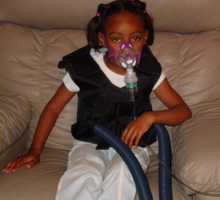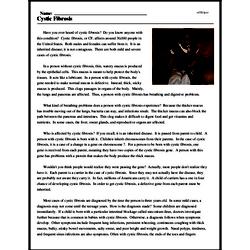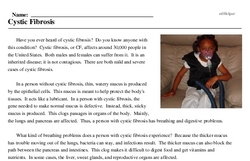Cystic Fibrosis
Have you ever heard of cystic fibrosis? Do you know anyone with this condition? Cystic fibrosis, or CF, affects around 30,000 people in the United States. Both males and females can suffer from it. It is an inherited disease; it is not contagious. There are both mild and severe cases of cystic fibrosis.
In a person without cystic fibrosis, thin, watery mucus is produced by the epithelial cells. This mucus is meant to help protect the body's tissues. It acts like a lubricant. In a person with cystic fibrosis, the gene needed to make normal mucus is defective. Instead, thick, sticky mucus is produced. This clogs passages in organs of the body. Mainly, the lungs and pancreas are affected. Thus, a person with cystic fibrosis has breathing and digestive problems.
What kind of breathing problems does a person with cystic fibrosis experience? Because the thicker mucus has trouble moving out of the lungs, bacteria can stay, and infections result. The thicker mucus can also block the path between the pancreas and intestines. This clog makes it difficult to digest food and get vitamins and nutrients. In some cases, the liver, sweat glands, and reproductive organs are affected.




